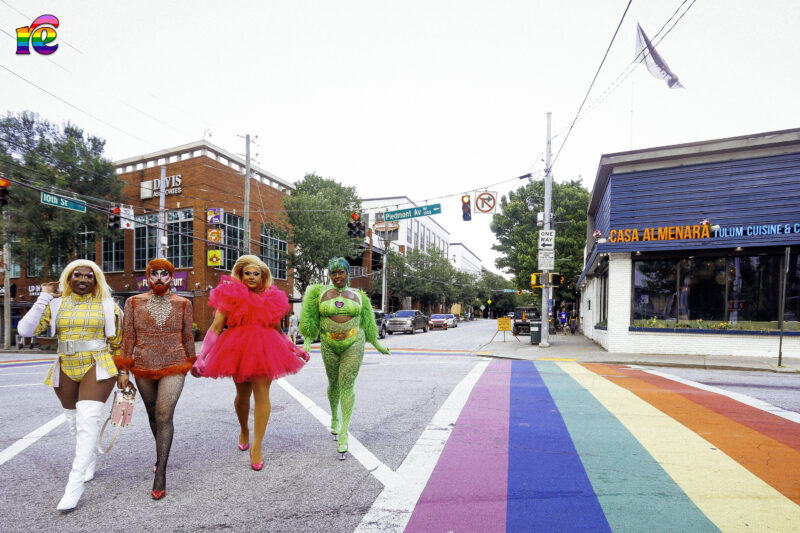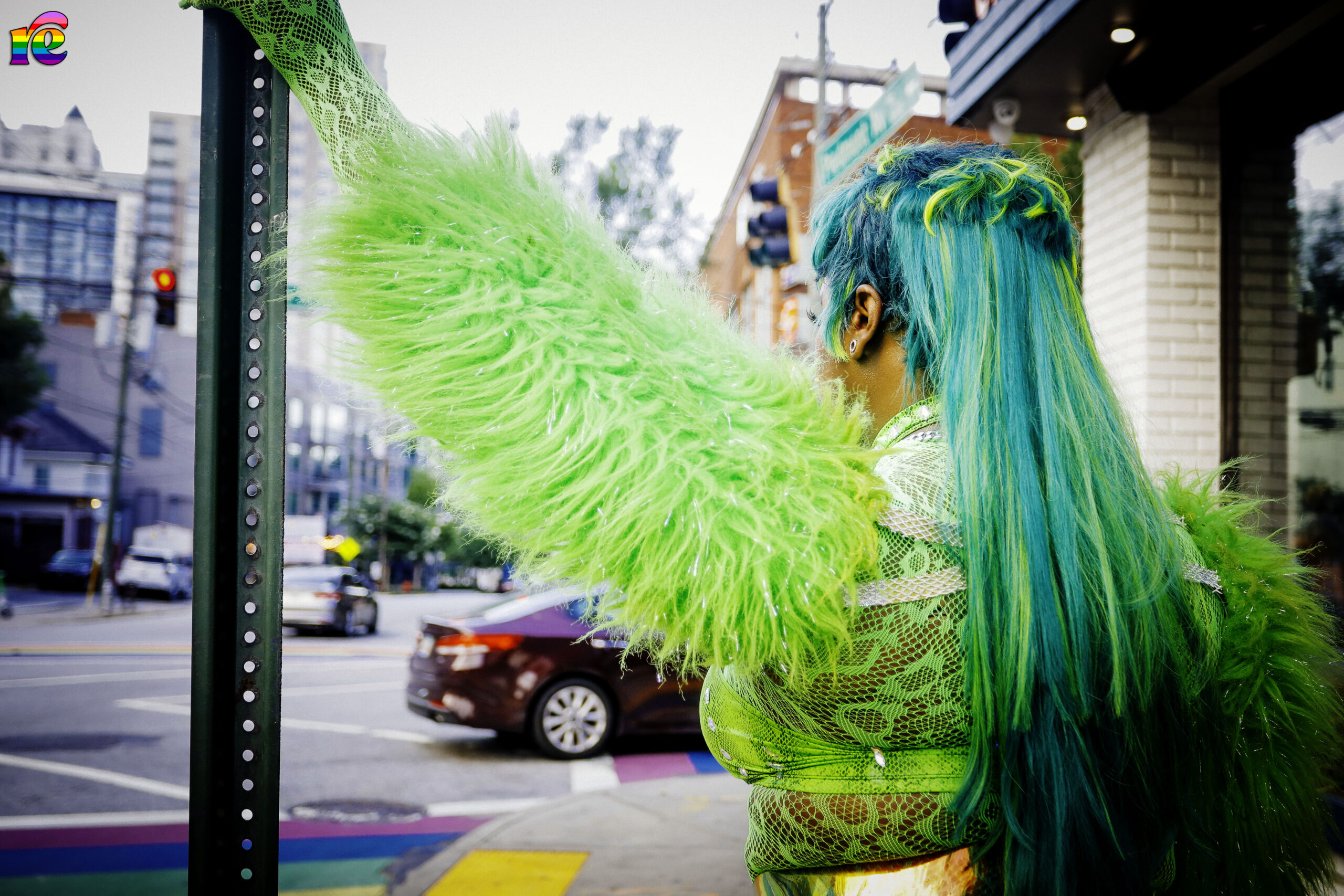How Conservatives Use Drag Bans to Peddle Gender Conformity
These drag bans are part of a broad push to force a very specific type of conservative white Christian morality on the nation.

Everything old is new again, at least when it comes to laws restricting how LGBTQ+ people present themselves and move in the world. As drag bans and bathroom bills have proliferated across the country, it’s telling how similar they are to the sort of presentation bans—laws that banned so-called cross-dressing, for example—that LGBTQ+ people have had to contend with for decades.
It’s a rerun of the tired old saw that it’s OK to be queer as long as you don’t look queer.
Presentation bans restricted how people could dress based on traditional gender roles. They’re nothing new—these “cross-dressing” laws date back to the mid-1800s. An early example was an 1848 Columbus, Ohio law that barred anyone from appearing in public in “a dress not belonging to his or her sex.” These laws served to criminalize nonconforming gender presentation—and by the 1960s, these laws were everywhere in the country.
Legal historian Kate Redburn noted last year that these laws were consistent with laws criminalizing prostitution, so-called sexual deviance, and public indecency “as part of a broader attempt to impose upper-class white Christian morality on the new urban masses.” These laws were directly challenged in court from the 1960s to the 1980s, but perhaps the biggest reason they largely disappeared was that once-nonconformist sartorial choices, such as women wearing pants, became commonplace.
In striking down a “cross-dressing” law in 1975, for example, an Ohio court wrote that “at the present time, clothing is sold for both sexes which is so similar in appearance that ‘a person of ordinary intelligence’ might not be able to identify it as male or female dress.” However, the United States never really fully excised the conservative impulse to enforce traditional gender roles, which is part of the reason we now find ourselves facing new instruments of enforcement and control. And just as before, these new anti-trans laws are part of a broad push to force a very specific type of conservative white Christian morality on the nation as a whole.

It’s tough to remember that just eight short years ago, North Carolina’s passage of a bathroom bill targeting transgender individuals resulted in an immediate—and expensive—backlash. The NBA moved the All-Star game out of the state, while the NCAA said it would relocate multiple tournaments. PayPal canceled a planned operations center in Charlotte. Bruce Springsteen pulled out of a concert in Greensboro. The law didn’t last a year before much of it was rolled back. Now, though, 12 states have laws requiring people to use bathrooms that match the sex they were assigned at birth.
Drag bans have faced more headwinds, suffering a series of setbacks in state legislatures and courts. Defeats aren’t slowing conservatives down, however. They just keep hammering state legislatures with the proposed laws. In 2024 alone, 25 drag-related bills have been considered in 12 states as of publication, according to the ACLU.
Now, restrictions and proposed restrictions are so prevalent that the large-scale boycott North Carolina faced is impossible to imagine. Last year, California was forced to repeal its travel ban. Originally passed in the wake of North Carolina’s 2016 law, the travel ban prohibited the use of state money to travel to states with anti-LGBTQ+ laws. However, as Republicans managed to pass a broad range of those anti-LGBTQ+ laws in 26 states, California’s ban on state-funded travel to more than half the country became untenable.
It isn’t just drag bans and bathroom bans, either.
Last year, the Texas Department of Agriculture issued a dress code that requires employees “to comply with this dress code in a manner consistent with their biological gender.” The code doesn’t define what that means, because doing so would make it a far less useful tool for enforcing gender conformity. The code also buckles under the weight of modernity, acknowledging as it must that women are allowed to wear pants.
These laws and codes inevitably reach beyond criminalizing the movement of trans individuals. People who are gender nonconforming, such as butch women or femme men, are often challenged when they try to use the bathroom. This is true even though, under the conservative demand that people use bathrooms that conform to their sex assigned at birth, these folks are, in fact, in the correct bathroom.
Some bathroom bills cover all K-12 schools, colleges, and government-owned buildings or spaces. Some cover just K-12 schools, while others cover some government buildings but not others, according to the Movement Advancement Project. Proposed drag bans are similarly haphazard: North Dakota’s proposed ban characterized all drag shows as “adult-oriented,” making them equivalent to strip clubs, while West Virginia lawmakers floated a ban that appeared to criminalize transgender people being around minors, period. The net effect is that it is impossible to know for sure what is permitted and what is prohibited.
This is a feature, not a bug. Just as the earlier “cross-dressing” laws were vague enough to make any non-conformity treacherous, modern-day analogs do the same. Anyone who falls outside the mainstream of traditional gender presentations, regardless of whether they happen to also be queer, now faces heightened scrutiny thanks to a patchwork of laws across the country.
All of these laws and proposals have one goal: making LGBTQ+ people—or anyone else not wedded to traditional gender roles—feel uncomfortable and unsafe. If people feel unsafe in this fashion, they will retreat from public life or radically change their self-presentation to conform better. Conservatives are likely thrilled with either result, as in both cases, they will have robbed queer people of their ability to fully and authentically participate in society. And that’s exactly the point.
